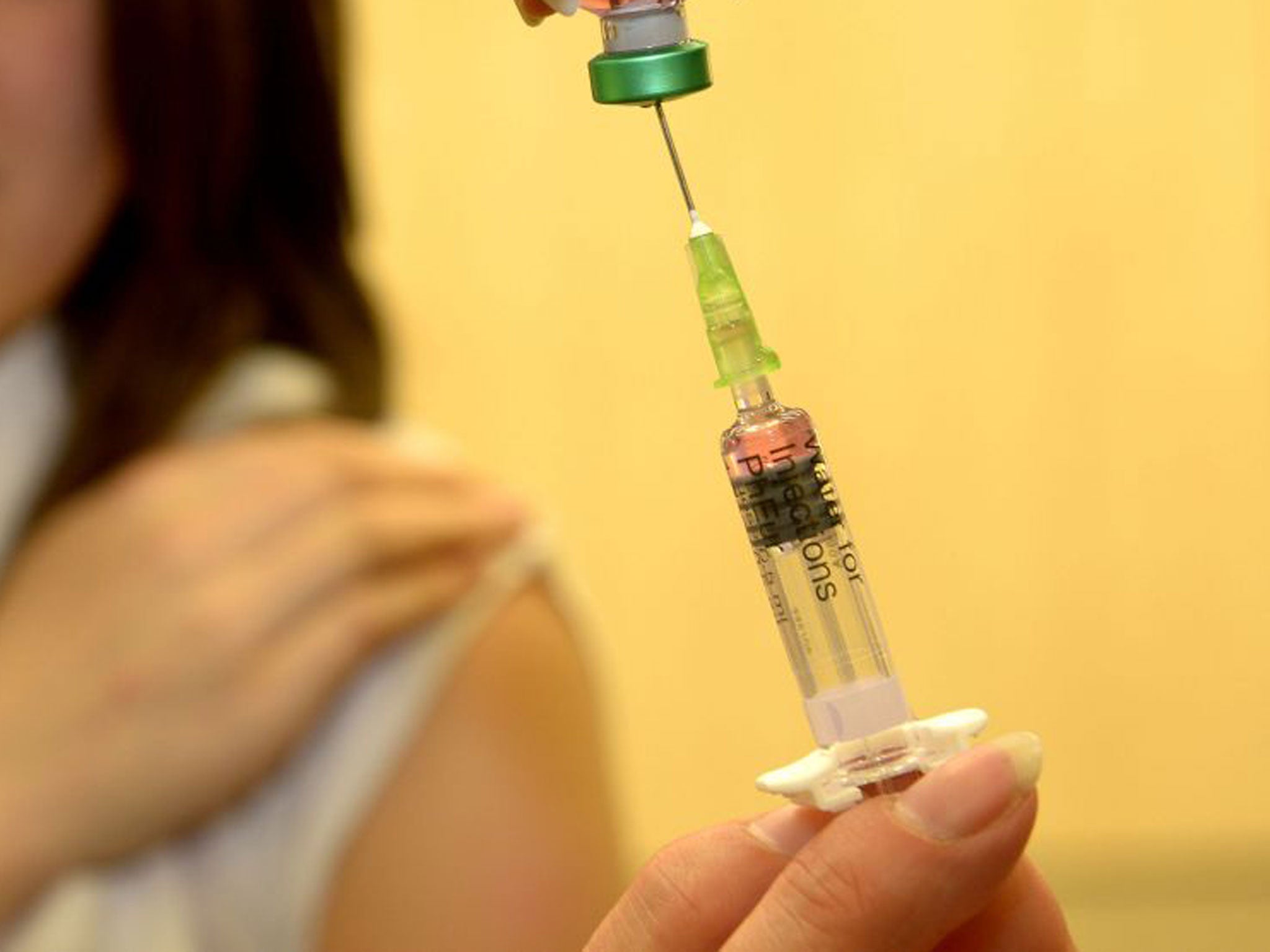Over three million teenagers to be vaccinated against 'virulent' new Meningitis strain
In England cases of the new 'highly aggressive' strain have soared from just 22 in 2009 to 117 in 2014, with 24 deaths in the past two years

More than three million teenagers are set to be offered immunisation against Meningococcal W (MenW) disease after a surge in meningitis cases caused by a new “highly aggressive” strain of bacteria.
All 14 to 18 year olds in England will be offered the jab. In England cases of MenW have soared from just 22 in 2009 to 117 in 2014, with 24 deaths in the past two years.
In January this year there were another 34 cases and Government advisors have now recommended hasty action to protect young people.
The Department of Health said it would act on the expert recommendation of the Joint Committee on Vaccination and Immunisation (JCVI). Officials will now enter into discussions with the vaccine manufacturer, GlaxoSmithKline to prepare national immunisation programmes.
A vaccine that protects against MenW, as well as three other forms of the disease, already exists, but is currently only given to a small number of people known to be a high risk of infection, or to people travelling to parts of the world where the bug is prevalent.
The MenACWY conjugate vaccine will now be given to potentially millions of teenagers. Health officials in Wales and Scotland said they were also considering the JCVI’s advice.
The rise in MenW cases was initially seen in adults, but the bug is now known to be responsible for meningitis and blood poisoning cases in all age groups, including young children. Health officials said the increase was caused by the spread of a “highly aggressive strain” of the MenW bug known as ST-11.
Most cases have been seen in otherwise healthy individuals, and infection rates have been particularly high at universities.
Teenagers are a key group who are more likely to carry and transmit the bug and immunising them will have a knock on effect for the wider population, but experts expressed concern that it would take time for this “herd immunity” to benefit young children who are at increased risk of meningitis.
Andrew Pollard, chair of the JCVI, said the committee had concluded that, left unchecked, the sharp increase in cases would be likely to continue.
“We have therefore advised the Department of Health to implement a vaccination programme for teenagers as soon as possible which we believe will have a substantial impact on the disease and protect the public’s health,” he said.
Meningococcal infections are the main cause of meningitis in the UK, and are split into six main groups: A, B, C, W, X and Y. MenB is the most common form, and MenC was also widespread until the introduction of a vaccine in 1999.
Meningitis is an infection of the protective membrane that surrounds the brain. In severe cases of bacterial meningitis, the disease can be devastating, with the potential for brain damage and also blood infection, or septicaemia, which can spread to the limbs and require amputations. The condition can be fatal.
Young children are the most likely to be affected by most forms of meningitis. MenW is more common in older people but in the past decade deaths among young children have been recorded for the first time.
The decision over MenW comes a year after the Department of Health pledged to vaccinate all children against MenB. However, negotiations between the Department and Novartis, the manufacturer of the vaccine, Bexsero, which also protects against MenW, are still ongoing. Patient groups are frustrated at the delay.
Chris Head, CEO of the Meningitis Research Foundation, said: “We applaud the quick action by the Government to protect 14 to 18-year-olds using the MenACWY vaccine. However, it will take more than a year for this protection to filter through to toddlers and infants, and in the meantime under fives will still be dying and disabled as a result of MenW.
“But the Bexsero vaccine, mainly regarded as a MenB vaccine, also provides protection against MenW and would provide more immediate protection for babies and toddlers.”
Join our commenting forum
Join thought-provoking conversations, follow other Independent readers and see their replies
Comments